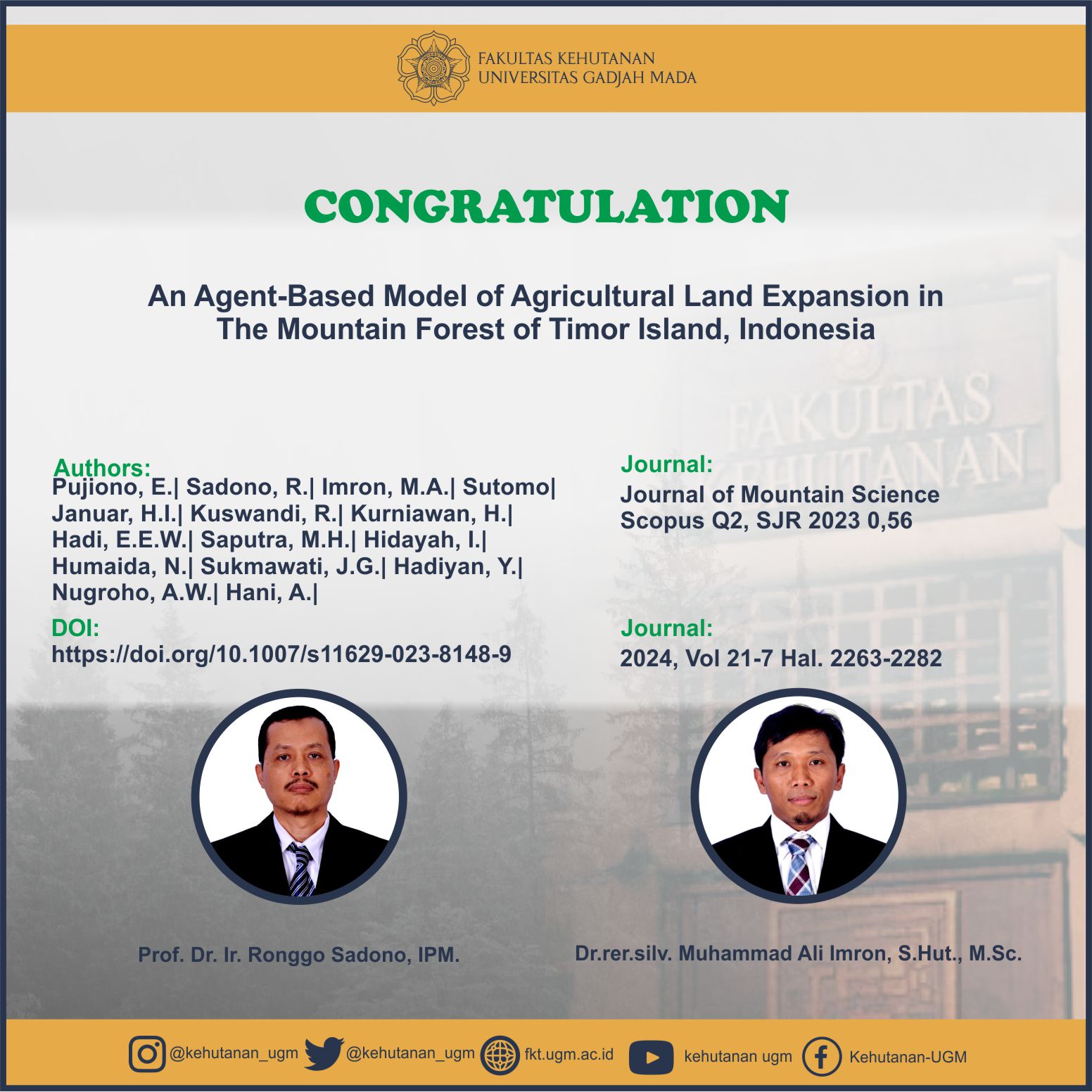
Abstract
The Mutis-Timau Forest Complex, located on Timor Island, Indonesia, is a mountainous tropical forest area that gradually decreases due to deforestation and forest degradation. Previous modelling studies based on patterns indicate that deforestation primarily occurs at lower elevations and near the boundaries of forests and settlements, often associated with shifting cultivation by local farmers. This study adopts a process-based modelling approach, specifically the agent-based model, to simulate land changes, particularly farmers’ expansion of agricultural land around the Mutis mountain forest. The underlying concept of this agent-based approach is the interaction between the human and environmental systems. Farmers, representing the human system, interact with the land, which represents the environmental system, through land use decision-making mechanisms. The research was conducted in the Community Forest of the Timor Tengah Utara District, one of the sites within the Mutis-Timau Forest Complex with the highest deforestation rate. Land use change simulations were performed using agent-based modelling from 1999 to 2030, considering the socio-economic conditions of farmers, spatial preferences, land use decisions, and natural transitions. The results revealed that the agricultural area increased by 14% under the Business as Usual scenario and 5% under the Reducing Emission from Deforestation and Forest Degradation scenario, compared to the initial agricultural area of 245 hectares. The probability of farmers deciding to extend agricultural activities was positively associated with the number of livestock maintained by farmers and the size of the village area. Conversely, the likelihood of farmers opting for agricultural extensification decreased with an increase in the area of private land and the farmer’s age. These findings are crucial for the managers of the Mutis-Timau Forest Complex and other relevant stakeholders, as they aid in arranging actions to combat deforestation, designing proper forest-related policies, and providing support for initiatives such as reducing emissions from deforestation and forest degradation programs or further incentive schemes.
SDGs
SDG 2: Zero Hunger
SDG 12: Responsible Consumption and Production
SDG 13: Climate Action
SDG 15: Life on Land
Link Dokumen:
Download
